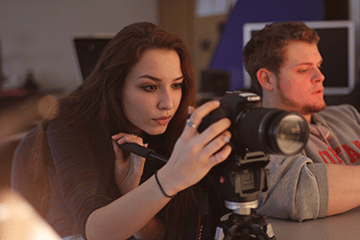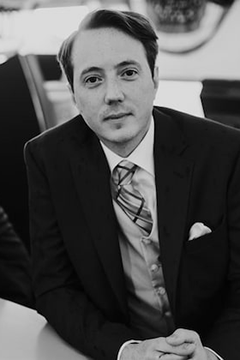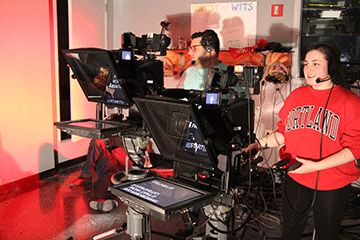
04/02/2024
Documentary films and series are a special storytelling medium. Well-produced documentaries have the potential to provide the public with information and entertainment, allowing viewers a transparent look into the authentic truth of a subject’s life.
However, behind the riveting interviews and camerawork, there’s a delicate balance between good-faith portrayals and exploitative narratives.
“We rely completely on ‘other lenses’ to tell us stories of the world,” said Sam Avery, filmmaker, associate professor of SUNY Cortland’s Communication and Media Studies Department, and coordinator of SUNY Cortland’s Blackbird Film Festival.

“Take the political climate we live in and ask yourself, how much of the divide in this country stems from media representations of the people involved — good or bad? It’s all a matter of framing, literally and metaphorically.”
Avery hopes to spread awareness of storytelling’s impact on society in an era of heightened media saturation with a talk titled “Framing Truth: Exploring Power Dynamics in Documentary Filmmaking,” on Wednesday, April 10, at SUNY Cortland.
The discussion, which is free and open to the public, closes the 2023-24 Rozanne M. Brooks Lecture Series, which featured five lectures on the theme of “The Culture of Power.”
The discussions begin at 4:30 p.m. in Moffett Center, Room 115. Seating will be limited, so attendees are advised to arrive early to secure a seat. A reception to welcome Avery precedes the talk at 4 p.m. in the adjacent Brooks Museum.
During the lecture, Avery wants to focus on his experience behind the camera and the “power” he has with the media product he creates — specifically when it comes to working with people who are already at a disadvantage and feel as if they are being misrepresented by the media.
After receiving his bachelor’s degree in media study: production from University at Buffalo, Avery completed his M.F.A. thesis there on nonfiction filmmaking.
“From 2010 to 2013, I made only documentary films, and this completely changed my outlook on filmmaking and the way to capture or tell stories,” Avery said.
“During that time, I produced a number of films: one of which took me to Swaziland and South Africa to create an ‘African Success Series,’ and another film called ‘Not Without Us’ that documented the legal struggle of people with mental illness as they fought for their rights across New York state.”
“Not Without Us” went on to be screened at several prominent film festivals across the U.S. The film was nominated for the 2014 Substance Abuse and Mental Health Services Administration Voice Award in Los Angeles.
Since then, Avery has continued to make nonfiction films that work with vulnerable communities, such as a dance studio in Hamburg, N.Y., that helps people with Parkinson’s Disease, a center that helps refugees find homes, and an inclusive school for children.

This year’s Blackbird Film Festival, featuring more than 100 films from around the world and 60-plus filmmakers, will kick off the day after his lecture, on April 11 at 5 p.m. in Old Main and will continue until Sunday, April 14.
The Brooks Series honors the late SUNY Distinguished Teaching Professor of sociology and anthropology emerita at SUNY Cortland, Rozanne M. Brooks, whose donated special collection of ethnographic objects to the Sociology/Anthropology Department established the Brooks Museum in 2001.
The 2023-24 Brooks Lecture Series is co-sponsored by the Cortland College Foundation and Cortland Auxiliary. For more information, contact Brooks lecture series organizer and Brooks Museum director Sharon Steadman, SUNY Distinguished Professor and chair of SUNY Cortland’s Sociology/Anthropology Department, at 607-753-2308.
Prepared by communications office writing intern Jean-Andre Sassine Jr. '23